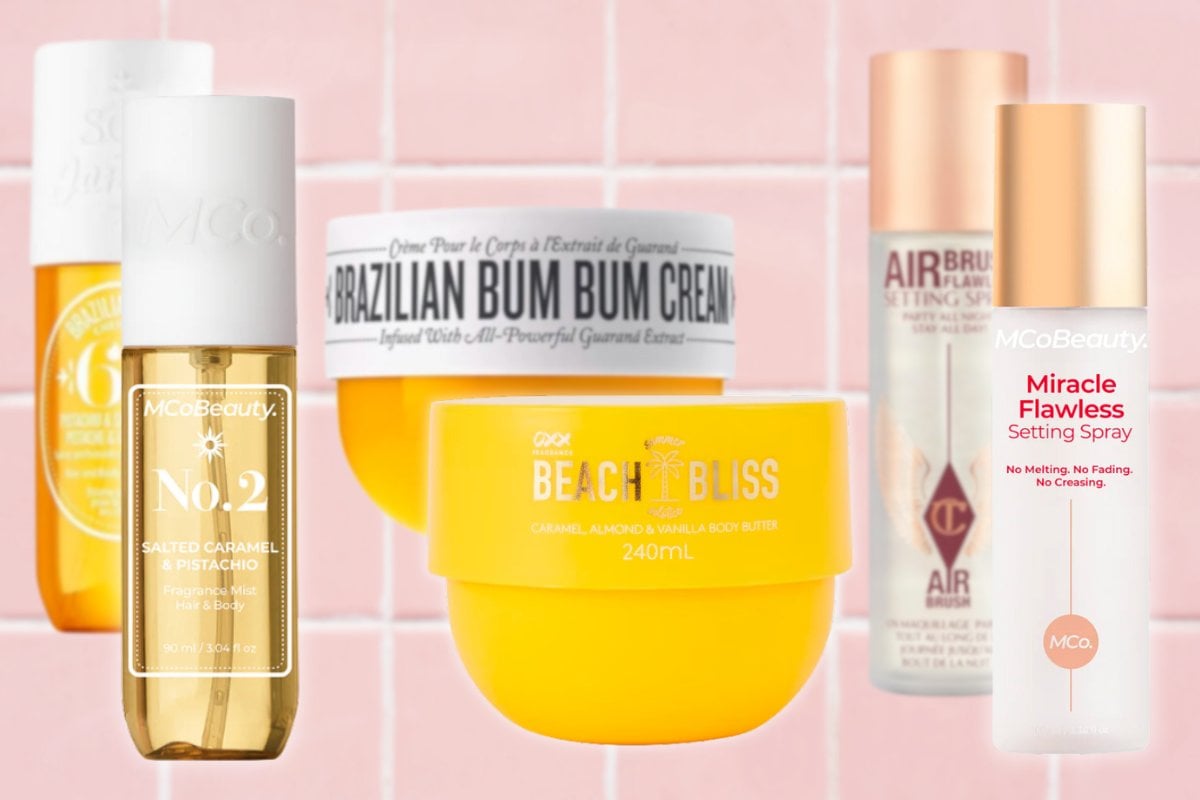
We are living in a dupe era.
The word 'knock-off' has been deleted from our vocabularies, and coveting a clever copycat is not shameful in the slightest. In fact, it's the opposite – finding samey beauty products that cost a fraction of The Real Thing has become an art form, and whichever companies can craft the best dupe at the lowest spend for customers is the undisputed winner of the game.
I love a dupe, personally. If I can make my money go further (and look great while I'm doing it), all the better, right? And I know approximately nobody who doesn't feel the same. Some of my favourite products fall under the dupe umbrella and it's consumers' ever-growing appetite for great quality skincare and makeup at an affordable price point that is driving the dupe trend.
From Kmart's astonishingly similar take on Sol de Janeiro's Brazilian Bum Bum Cream, to e.l.f's Halo Glow Liquid Filter (a dead ringer for the bevoled Charlotte Tilbury Flawless Filter), you can barely turn a corner without seeing a new budget-friendly version of a cult product pop up.
Australian beauty brand MCoBeauty, in particular, has become popular for its highly coveted products that mimic higher-end beauty buys. Amidst their 300+ products (and counting), only a handful seemingly emulate other brands’ cult offerings – yet it's for these the brand has become famous.
Watch: Horoscopes and self-care. Article continues below.
Top Comments